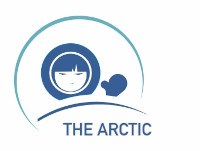Indigenous peoples are ancestors of men who lived on land, which currently is a territory of nation states. Throughout the years, they have maintained and cherished ancient and unique ways of life that are distinct from those of the dominant societies in which they live today.
Despite the indigenous cultures are very diverse, they have all experienced similar problems in the past. They have been deprived their identities, ways of life and lands in severe assimilation processes making them the most disadvantaged and vulnerable groups of people in the world today.
The first attempts of organization amongst the North American Indians occurred at around the same time as amongst the Sami of Scandinavia or around 1910. However, the international indigenous movement did not really begin before the beginning of the 1960's, when new way of thinking emerged and a wave of decolonization took place in the world.
In the process of decolonization, the UN adopted a resolution on the self-determination of peoples, which guaranteed all peoples a right to determine their own social and cultural development.
In the beginning of the 1970's the United Nations started to notify the disadvantaged position of indigenous peoples in connection with its work on racism. A comprehensive study on indigenous peoples was conducted resulting in establishment of the UN Working Group on Indigenous Population in 1982.
The mandate of the Working Group contained two major issues. It was to create standards concerning the rights of indigenous peoples and review the developments pertaining to the promotion and protection of human rights and fundamental freedoms of indigenous peoples.
In 1993, after ten years of intensive work a Draft declaration on the rights of indigenous peoples was adopted. It took though another fourteen years before the states could agree on the declaration and finally it was adopted by the UN General Assembly in September 13, 2007.
It is estimated that there are today more than 370 million indigenous peoples in some 70 countries worldwide. Since the establishment of the Working Group in 1982, awareness on indigenous issues has been steadily arising. Today, their rights are well protected under international law. However, work is still to be done before the world's indigenous peoples can say that their identities and ways of life are truly respected by the dominant societies.
Key international Legal Agreements on Indigenous Peoples Rights
International
- United Nations Declaration on the Rights of Indigenous Peoples
- International Covenant on Civil and Political Rights
- International Covenant on Economic, Social and Cultural Rights
- International Convention on the Elimination of All Forms of Racial Discrimination
- Convention (No. 169) concerning Indigenous and Tribal Peoples in Independent Countries
Europe
- Convention for the Protection of Human Rights and Fundamental Freedoms as amended by Protocol No. 11
- Framework Convention for the Protection of National Minorities
- European Charter for Regional or Minority Languages
- Council of Europe Framework Convention on the Value of Cultural Heritage for Society
Americas








